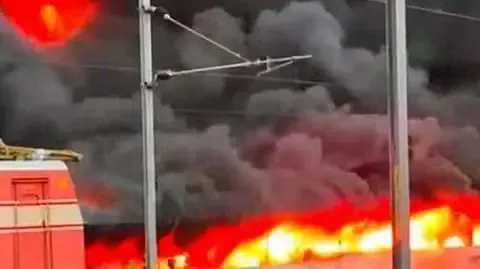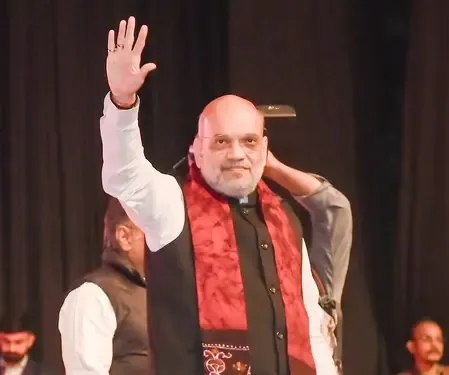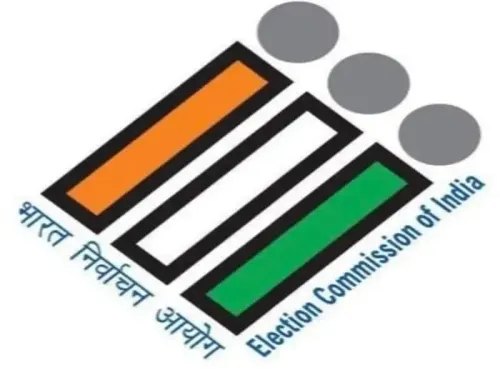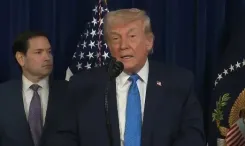Was the 2021 Bengal post-poll violence an attack on democracy?
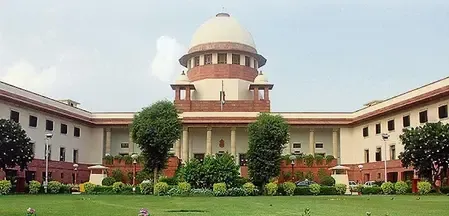
Synopsis
Key Takeaways
- The Supreme Court's condemnation of the violence highlights its impact on democracy.
- Bail cancellation reflects the seriousness of the allegations against the accused.
- The need for prompt legal action to ensure justice in politically charged situations.
- Protection for witnesses is essential for a fair trial.
- The ruling emphasizes the importance of maintaining political peace and accountability.
New Delhi, June 4 (NationPress) The Supreme Court has described the 2021 post-election violence in West Bengal targeting BJP party workers as a despicable act that represents a serious assault on the foundations of democracy. This statement was made by a panel of Justices Vikram Nath and Sandeep Mehta while reviewing a petition from the Central Bureau of Investigation (CBI) contesting the bail granted to several individuals accused in the post-poll violence incidents.
The CBI argued that the Calcutta High Court had granted bail to the accused based on entirely irrelevant factors, asserting that their release jeopardized the possibility of a fair trial.
In response, the Supreme Court ordered the cancellation of bail, highlighting that the charges against the accused were so severe that they disturbed the court's conscience. The court noted, “The coordinated attack on the complainant's residence occurred on the day the election results were announced, driven by a desire for revenge due to his support for the saffron party. This is a critical factor that leads us to believe the accused aimed to intimidate members of the opposing political faction,” stated the apex court.
The court observed that there has been no progress in the trial, despite a charge sheet being filed back in 2022, attributing this delay largely to the accused's lack of cooperation.
Stating that a fair and impartial trial could not proceed if the accused remained free on bail, the Supreme Court nullified the bail order from the Calcutta High Court.
“The accused must report to the trial court within two weeks; if they fail to do so, the trial court is authorized to take coercive actions to ensure their appearance. Upon surrendering or arrest, the accused will be placed in custody,” directed the Supreme Court.
The court also instructed the trial court to hasten the proceedings and aim to conclude the trial within six months.
The Supreme Court mandated the Home Secretary and the Director General of Police of West Bengal to guarantee adequate protection for the complainant and all crucial witnesses so that they can confidently participate in the trial without fear.
The CBI or the complainant was also granted the right to directly inform the Supreme Court of any breaches of these directives.
Following the post-poll violence, an FIR was filed against the accused in December 2021, covering offenses under various sections of the Indian Penal Code (IPC), 1860.
The complainant, who identifies as Hindu, alleged that most residents in his village belong to another community that supports the ruling Trinamool Congress. He claimed that some villagers had started campaigning for the Bharatiya Janata Party (BJP) before the assembly elections, which incited anger from Trinamool supporters, and a bomb was thrown at his tea stall.
On the day the election results were declared, a group of 40-50 assailants gathered and began launching bombs at the complainant's house.
The complainant’s property was completely destroyed and looted. His wife was assaulted, her hair pulled, and her clothing torn; in a desperate attempt to protect herself, she threatened to self-immolate with kerosene, prompting the assailants to flee.
When the complainant and his family sought assistance at Sadaipur Police Station the following day, the officer-in-charge refused to file their complaint, advising them to abandon their village.
Subsequent to multiple writ petitions alleging non-registration of FIRs related to post-poll violence, the Calcutta High Court ordered a CBI investigation into all cases involving murder and crimes against women.
The CBI subsequently submitted a charge sheet against numerous assailants, including the accused, for offenses under various sections of the IPC.



